Introduction
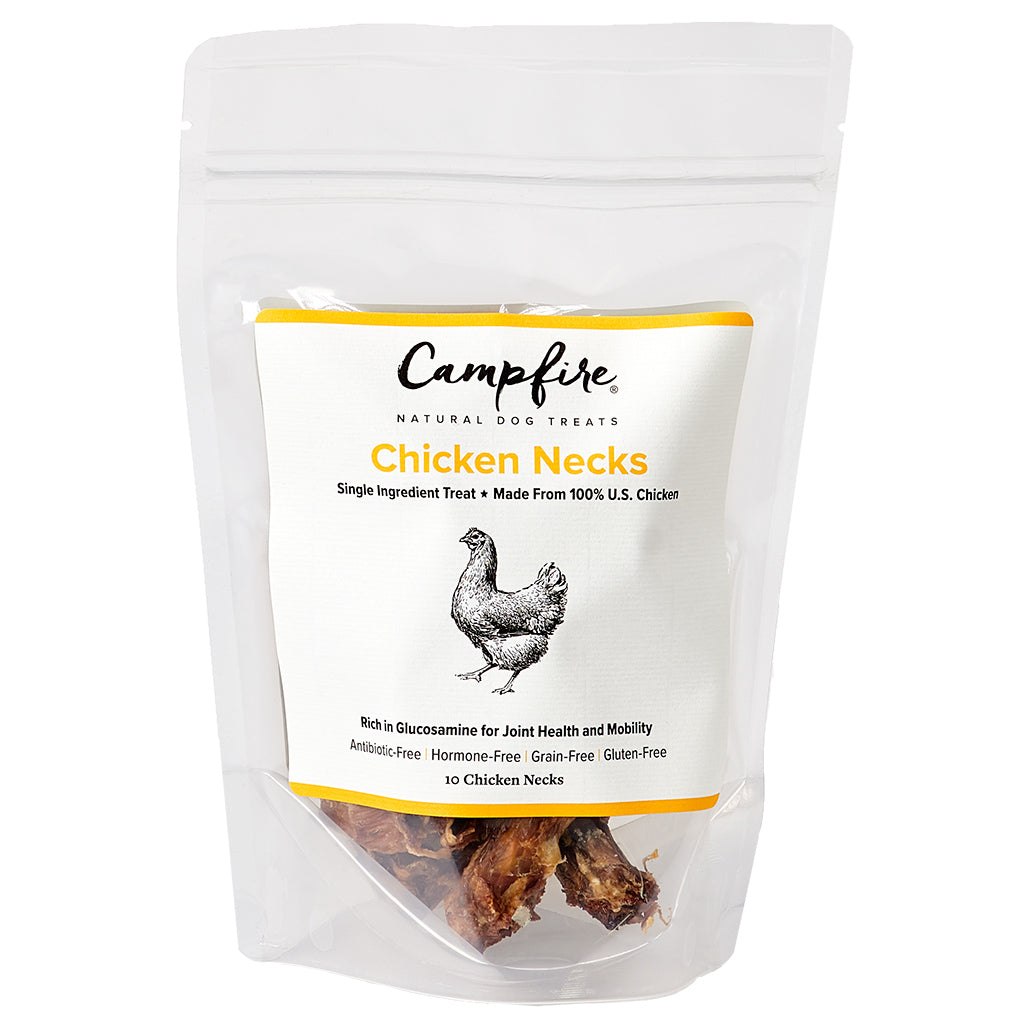
The introduction section of this blog explores the importance of pet nutrition and making informed choices about what dogs eat. It highlights the benefits of including chicken necks in a dog’s diet as a supplemental treat. The nutritional value of chicken necks is discussed, focusing on the protein content and essential nutrients they provide. However, it also addresses the potential risks associated with feeding chicken necks to dogs, such as choking hazards and digestive issues. The section concludes with a mention of alternatives to chicken necks and the perspective of veterinarians on this matter. Overall, the aim is to provide readers with a comprehensive understanding of the safety and benefits of feeding chicken necks to dogs.
Introduction To Pet Nutrition And The Importance Of Choosing The Right Food For Dogs
Proper nutrition is crucial for the overall health and well-being of our furry friends. Just like humans, dogs require a balanced diet to thrive and maintain optimal health. As pet owners, it is our responsibility to choose the right food for our dogs, ensuring that their nutritional needs are met. The right food provides essential nutrients such as proteins, carbohydrates, fats, vitamins, and minerals, which support their growth, maintain a healthy weight, and strengthen their immune system. By making informed choices about our dog’s diet, we can give them the best chance at a long and happy life.
Benefits Of Including Chicken Necks In A Dog’s Diet
Including chicken necks in a dog’s diet can have several benefits. Chicken necks are a good source of protein, which is essential for building and repairing tissues in the body. They also contain glucosamine and chondroitin, which can help improve joint health and reduce the risk of arthritis in dogs. Additionally, chewing on chicken necks can help promote dental health by reducing plaque and tartar buildup. However, it is important to note that chicken necks should only be given as a supplemental treat and should not make up the entire diet of a dog.
Nutritional Value Of Chicken Necks
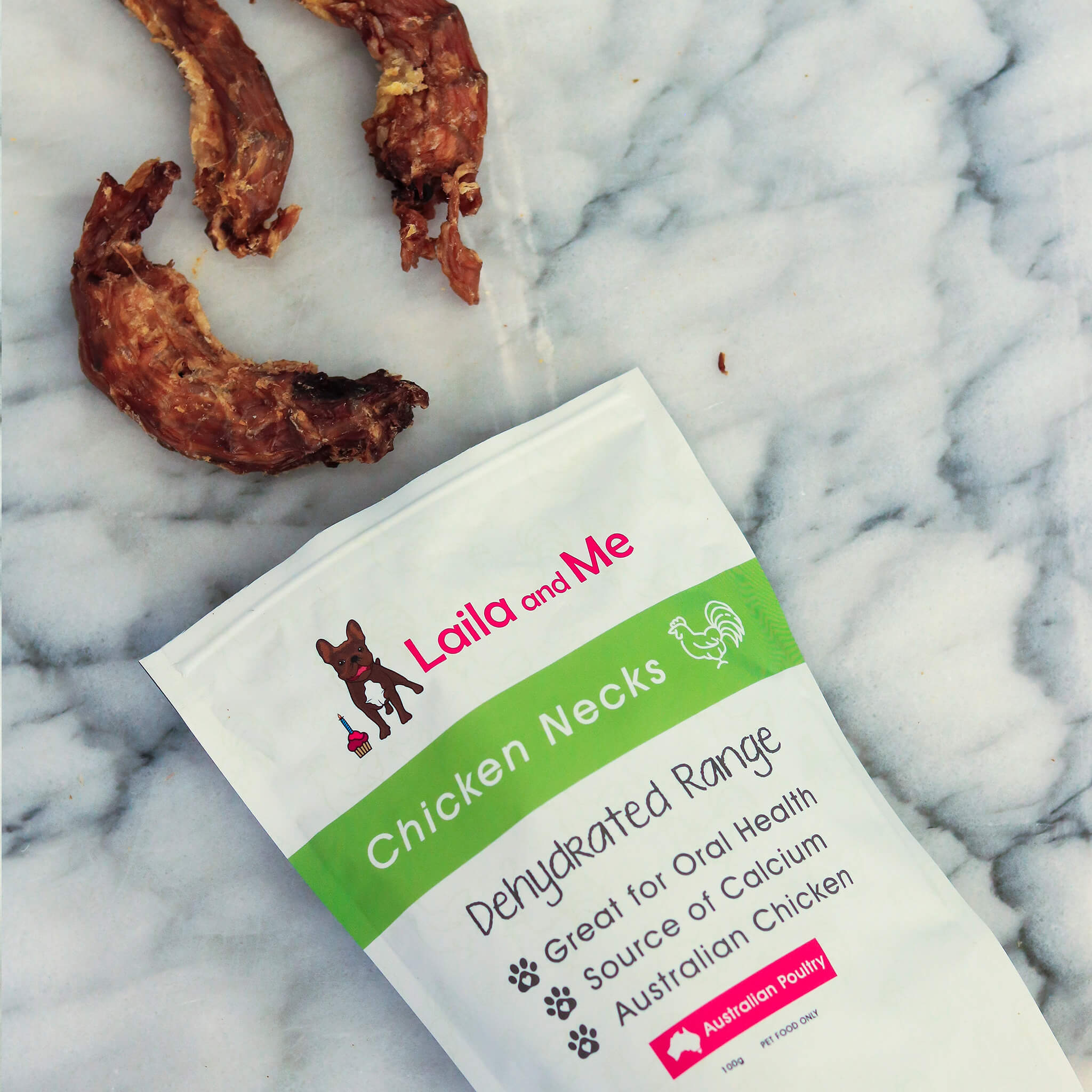
Chicken necks are packed with nutrients that can benefit a dog’s overall health. They are an excellent source of protein, with around 52.9% protein content. Protein is essential for muscle development and repair. Additionally, chicken necks contain natural calcium, which helps support strong bones and teeth. They also provide healthy fats, moisture, and fiber. Dogs can enjoy the crunchy texture of chicken necks while getting essential nutrients. However, it is important to remember that chicken necks should be given as a supplemental treat and not as the sole source of nutrition for dogs.
Protein Content And Essential Nutrients In Chicken Necks
Chicken necks are packed with essential nutrients that can benefit a dog’s overall health. They are an excellent source of protein, with around 52.9% protein content. Protein is crucial for muscle development and repair, promoting strong and healthy muscles. Additionally, chicken necks contain natural calcium, which helps support strong bones and teeth in dogs. They also provide healthy fats and moisture. The crunchy texture of chicken necks can be enjoyed by dogs while receiving necessary nutrients. However, it’s important to note that chicken necks should be given as a supplemental treat and not as the sole source of nutrition for dogs.
Balancing A Dog’s Diet With Chicken Necks As A Supplemental Treat
Balancing a dog’s diet is crucial for their overall health and well-being. While chicken necks can be a nutritious treat for dogs, it’s important to incorporate them as a supplemental part of their diet. They should not be the sole source of nutrition. Including chicken necks in moderation can provide dogs with essential nutrients like protein and calcium that promote muscle development and strong bones. However, it’s important to balance their diet with other sources of nutrients, such as fruits, vegetables, and grains, to ensure they receive a complete and balanced diet. Offering a variety of treats and foods helps provide dogs with a diverse range of nutrients for optimal health and nutrition.
Risks Of Feeding Chicken Necks To Dogs
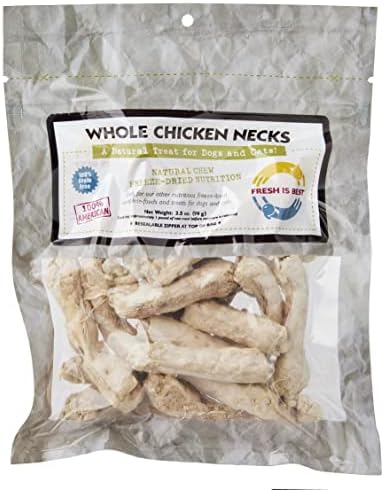
Feeding chicken necks to dogs can come with certain risks that pet owners should be aware of. One potential risk is the presence of harmful bacteria like Salmonella and E. coli in raw chicken. These bacteria can cause serious infections in both dogs and humans. Additionally, chicken necks can pose a choking hazard, especially for smaller dogs or those who have a tendency to gulp their food. Some dogs may also experience digestive issues such as diarrhea or vomiting after consuming raw chicken necks. Therefore, it is important for pet owners to take precautions and carefully monitor their dog’s response when feeding them chicken necks.
Potential Choking Hazards And Digestive Issues Associated With Chicken Necks
Feeding chicken necks to dogs can come with certain risks. One of the main concerns is the potential choking hazard, especially for smaller dogs or those with a tendency to gulp their food. Chicken necks can be small and easily swallowed whole, increasing the risk of choking or blockage in the airway.
In addition to choking, some dogs may experience digestive issues after consuming chicken necks. The high bone-to-meat ratio in chicken necks can lead to constipation or gastrointestinal discomfort. It’s important to closely monitor your dog while they are eating chicken necks to prevent any potential issues.
To minimize the risk of choking or digestive issues, it is advisable to supervise your dog while they are eating chicken necks and ensure they chew them properly. It may also be helpful to consider alternative treats or sources of protein that are less prone to these issues.
Precautions To Take When Feeding Chicken Necks To Dogs
When feeding chicken necks to dogs, it is important to take certain precautions to ensure their safety and well-being. Firstly, always supervise your dog while they are eating chicken necks to prevent any potential choking hazards. Make sure your dog chews the chicken necks thoroughly before swallowing to minimize the risk of choking or blockage. Additionally, it is recommended to choose chicken necks that are appropriately sized for your dog’s breed and size to prevent any discomfort or digestive issues. Lastly, if your dog has any pre-existing health conditions or dietary restrictions, consult with your veterinarian before incorporating chicken necks into their diet.
Alternatives To Chicken Necks For Dog Nutrition
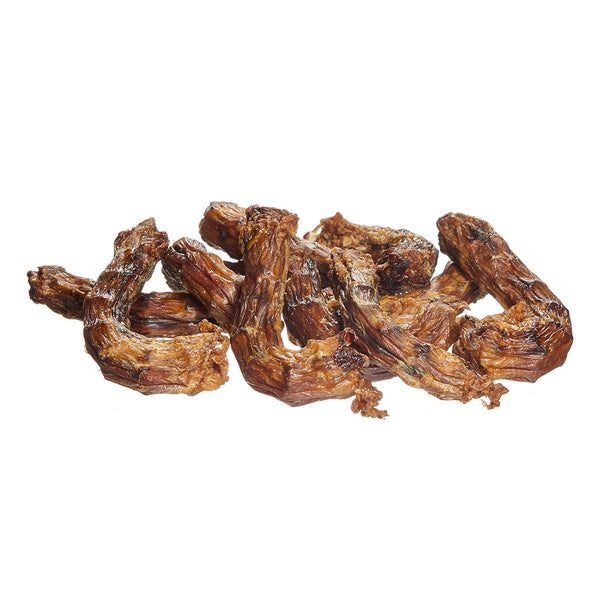
When it comes to providing nutrition for dogs, there are plenty of alternatives to chicken necks that can offer similar benefits. One option is to include other types of raw or cooked bones in your dog’s diet, such as turkey necks or beef marrow bones. These bones provide a good source of calcium and minerals. Another alternative is to offer dental chews or dental treats that are specifically designed to promote oral health. Additionally, you can incorporate other sources of protein into your dog’s diet, such as lean meats like chicken breast or fish. Remember to always consult with your veterinarian to ensure you are meeting your dog’s nutritional needs.
Exploring Other Sources Of Protein And Nutrients For Dogs
Dogs can benefit from a variety of protein and nutrient sources in their diet. In addition to chicken necks, there are several alternatives to consider. Turkey necks offer a similar protein content and can be a tasty treat for your furry friend. Beef marrow bones are also a great option, providing calcium and minerals for strong bones and teeth. Lean meats such as chicken breast and fish are excellent sources of protein. Additionally, dental chews and treats designed to promote oral health can be incorporated into your dog’s routine. It’s important to consult with your veterinarian to determine the best sources of nutrition for your dog.
Comparing Different Types Of Treats And Raw Food Options For Dogs
When it comes to selecting treats and raw food options for dogs, there are several factors to consider. One option is dehydrated treats, which provide a convenient and shelf-stable alternative to raw chicken necks. These treats can be made from various meats and are often minimally processed, preserving their nutritional value. Another option is commercially prepared raw food diets, which are specifically formulated to provide balanced nutrition for dogs. These diets typically contain a combination of raw meats, vegetables, and supplements to ensure dogs receive all the necessary nutrients. It’s important to review the ingredients and consult with a veterinarian to determine the best option for your furry friend.
Veterinarian’s Perspective
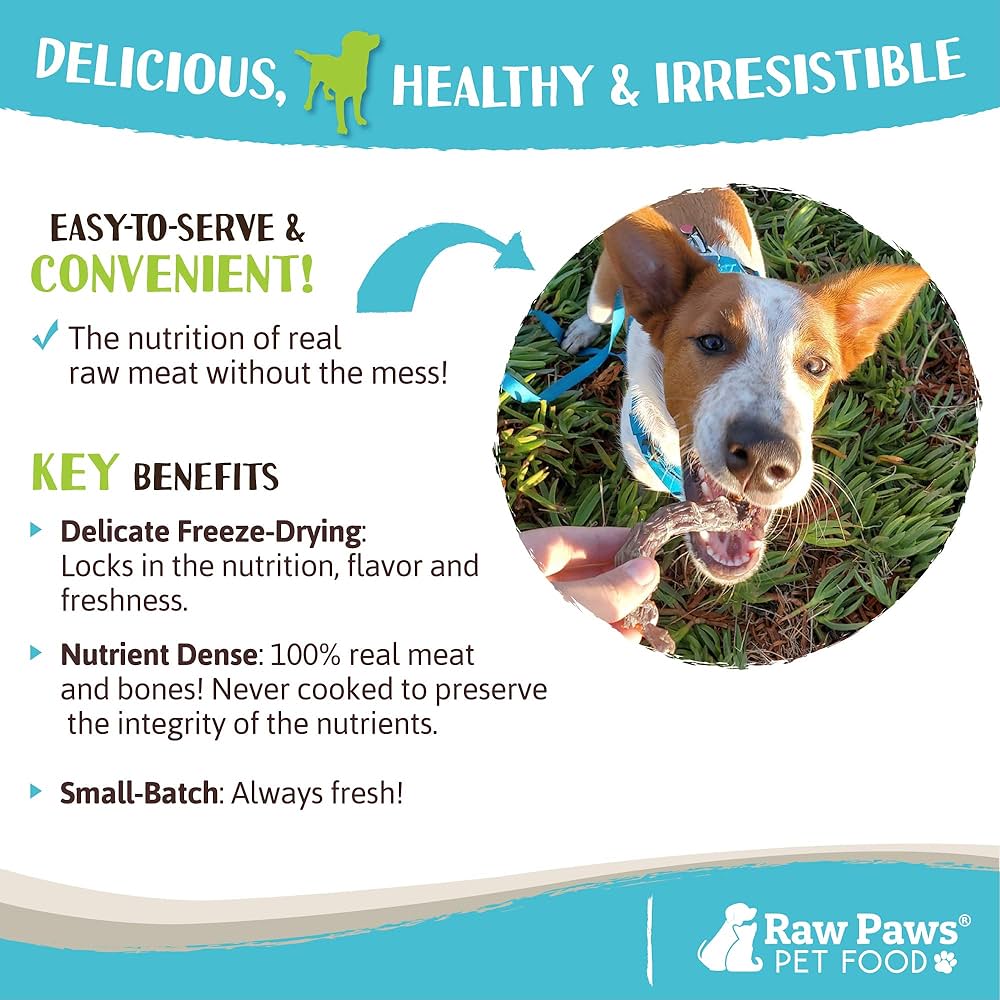
Veterinarians play a crucial role in guiding pet owners towards making informed decisions regarding their dog’s diet. When it comes to feeding chicken necks to dogs, it is advisable to consult with a veterinarian. They can provide expert opinions and recommendations based on the individual needs and health conditions of the dog. Veterinarians can analyze factors such as age, breed, and activity level to determine the appropriate inclusion of chicken necks or other raw meats in the dog’s diet. Seeking professional advice ensures a balanced and safe nutritional plan for your furry friend.
Expert Opinions On Feeding Chicken Necks To Dogs
Veterinarians play a crucial role in guiding pet owners towards making informed decisions regarding their dog’s diet. When it comes to feeding chicken necks to dogs, it is advisable to consult with a veterinarian. They can provide expert opinions and recommendations based on the individual needs and health conditions of the dog. Veterinarians can analyze factors such as age, breed, and activity level to determine the appropriate inclusion of chicken necks or other raw meats in the dog’s diet. Seeking professional advice ensures a balanced and safe nutritional plan for your furry friend.
Recommendations For A Balanced And Safe Diet For Dogs
When it comes to feeding your dog, it is important to ensure a balanced and safe diet to promote their overall health and well-being. Along with incorporating chicken necks as a supplemental treat, it is crucial to include a variety of other protein sources and nutrient-rich foods. Consult with a veterinarian to determine the specific dietary needs of your dog based on factors such as age, breed, and activity level. Additionally, it is important to feed your dog portion-controlled meals and avoid overfeeding. Regular exercise, access to fresh water, and regular veterinary check-ups are also essential for maintaining a balanced and safe diet for your furry friend. Keeping these recommendations in mind will help ensure that your dog receives the nutrition they need for a long and healthy life.
Conclusion
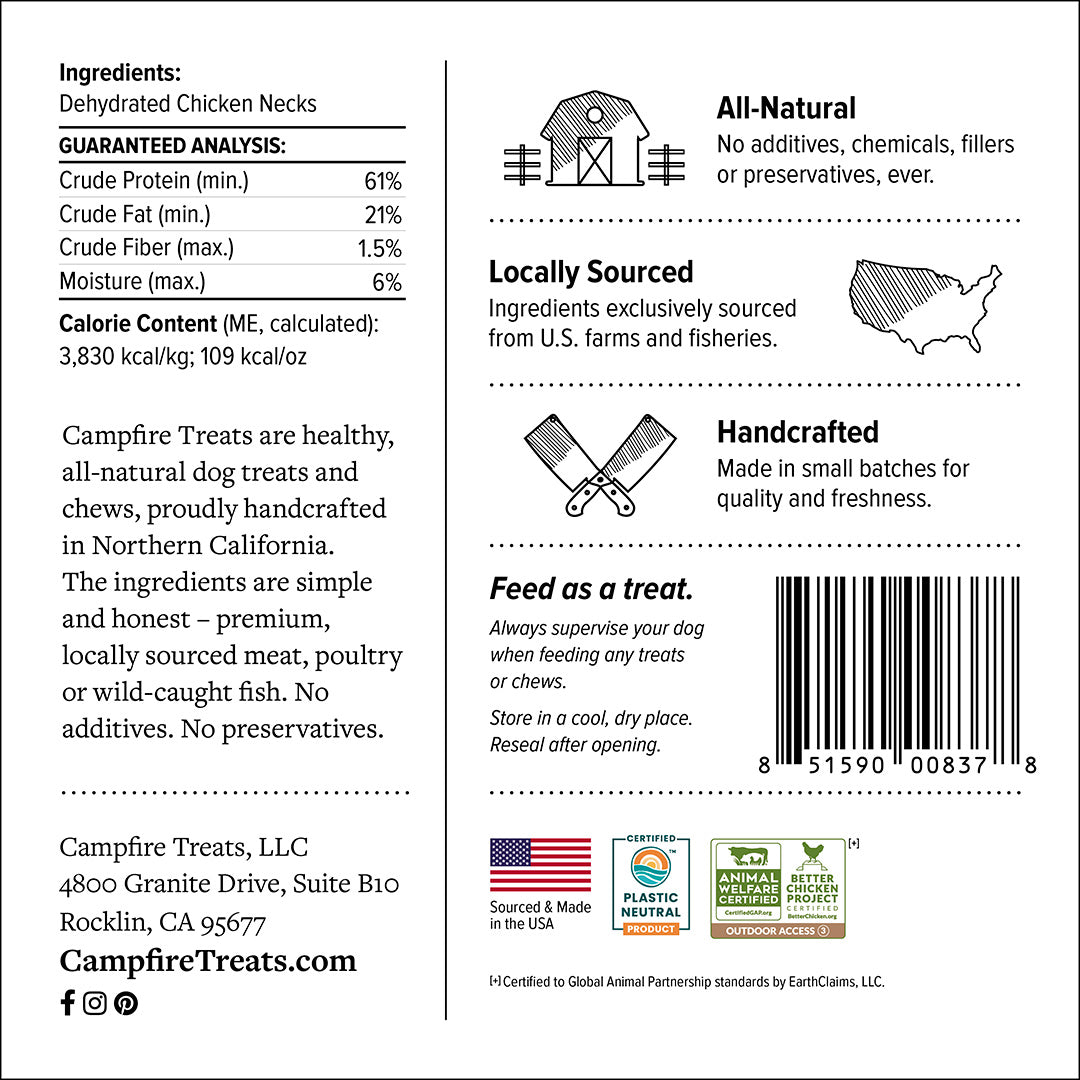
In conclusion, chicken necks can be a nutritious and beneficial treat for dogs when fed in moderation and prepared properly. They provide essential protein and nutrients that contribute to a balanced diet. However, it is important to be aware of the potential risks associated with chicken necks, such as choking hazards and digestive issues. It is crucial to make informed decisions about incorporating chicken necks and other bones into your dog’s diet. Consulting with a veterinarian is recommended to ensure the safety and overall health of your furry friend.
Summary Of The Safety And Benefits Of Feeding Chicken Necks To Dogs
Feeding chicken necks to dogs can have both safety and nutritional benefits when done correctly. Chicken necks are a great source of protein and essential nutrients, contributing to a balanced diet for dogs. However, it is crucial to be aware of the potential risks associated with chicken necks, such as choking hazards and digestive issues. Taking precautions and consulting with a veterinarian can help ensure the safety and overall health of your furry friend. Consider incorporating chicken necks as a supplemental treat, but always remember to feed them in moderation and prepare them properly.
Final Thoughts On Incorporating Chicken Necks Into A Dog’s Diet
In conclusion, incorporating chicken necks into a dog’s diet can have both nutritional benefits and potential risks. It is important to consider the safety precautions and consult with a veterinarian before introducing chicken necks as part of their regular meals. A balanced and varied diet is key to ensuring the overall health of your dog. While chicken necks can provide essential nutrients and act as a supplemental treat, it is crucial to feed them in moderation and ensure they are properly prepared to minimize the risk of choking or digestive issues. Make informed decisions and prioritize your dog’s well-being when considering chicken necks as a dietary option.
FAQ About Are Chicken Necks Safe For Dogs? Exploring Pet Nutrition
Q: Can dogs eat chicken necks safely?
A: Yes, chicken necks can be safe for dogs to eat, as they are a good source of protein and essential nutrients. However, it is important to ensure they are raw and not cooked, as cooked bones can splinter and pose a choking hazard.
Q: What are the benefits of feeding chicken necks to dogs?
A: Chicken necks can help support dental health by aiding in cleaning teeth and promoting good gum health. They are also a natural source of glucosamine and chondroitin, which can benefit joint health in dogs.
Q: How should chicken necks be prepared for dogs?
A: Chicken necks should be fed raw to dogs, as cooked bones can become brittle and may splinter, leading to potential digestive issues or injuries. It is essential to supervise your dog while they eat chicken necks to prevent choking or any other potential hazards.
Q: Are there any risks associated with feeding chicken necks to dogs?
A: While chicken necks can be a healthy treat for dogs, there are some risks to be aware of. Dogs that gulp their food without chewing thoroughly may be at risk of choking on bones. Additionally, dogs with a history of pancreatitis or obesity should consume chicken necks in moderation due to their high-fat content.
Q: How often can dogs eat chicken necks?
A: The frequency of feeding chicken necks to dogs should be based on their overall diet and nutritional needs. It is recommended to consult with a veterinarian or a pet nutritionist to determine the appropriate amount of chicken necks to include in your dog’s diet safely.

ToroGrill Canada is excited to share our one-of-a-kind and authentic South American BBQ flavors with the wonderful people of Canada. Our journey began with a passion for bringing South America’s rich and vibrant culinary traditions to a new audience, and we have been dedicated to this mission ever since. Our story is one of inspiration, hard work, and the pursuit of excellence. Every recipe, every ingredient, and every cooking technique has been carefully honed and perfected to ensure that when you take a bite of our food, you experience the true essence of South American BBQ.